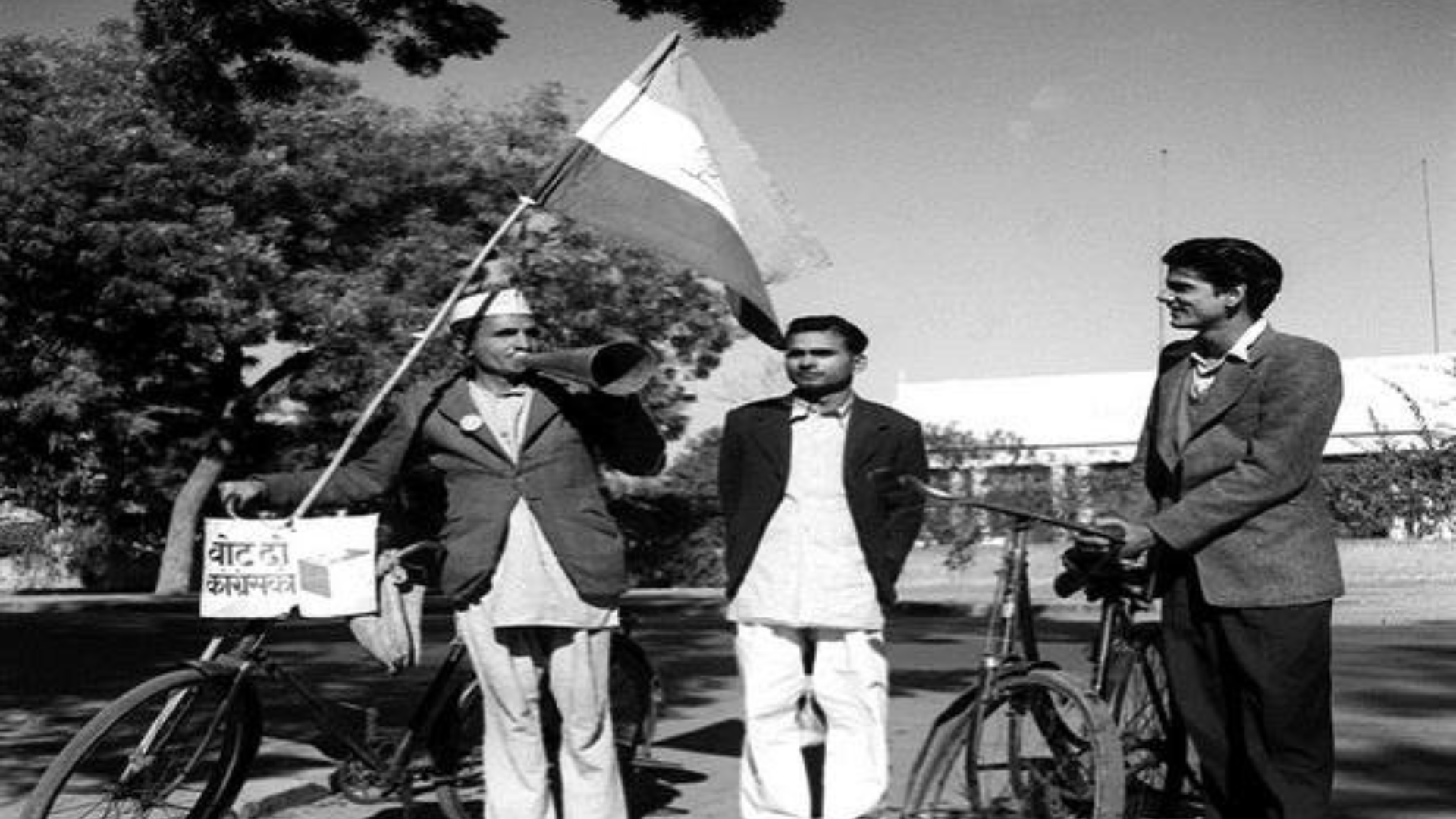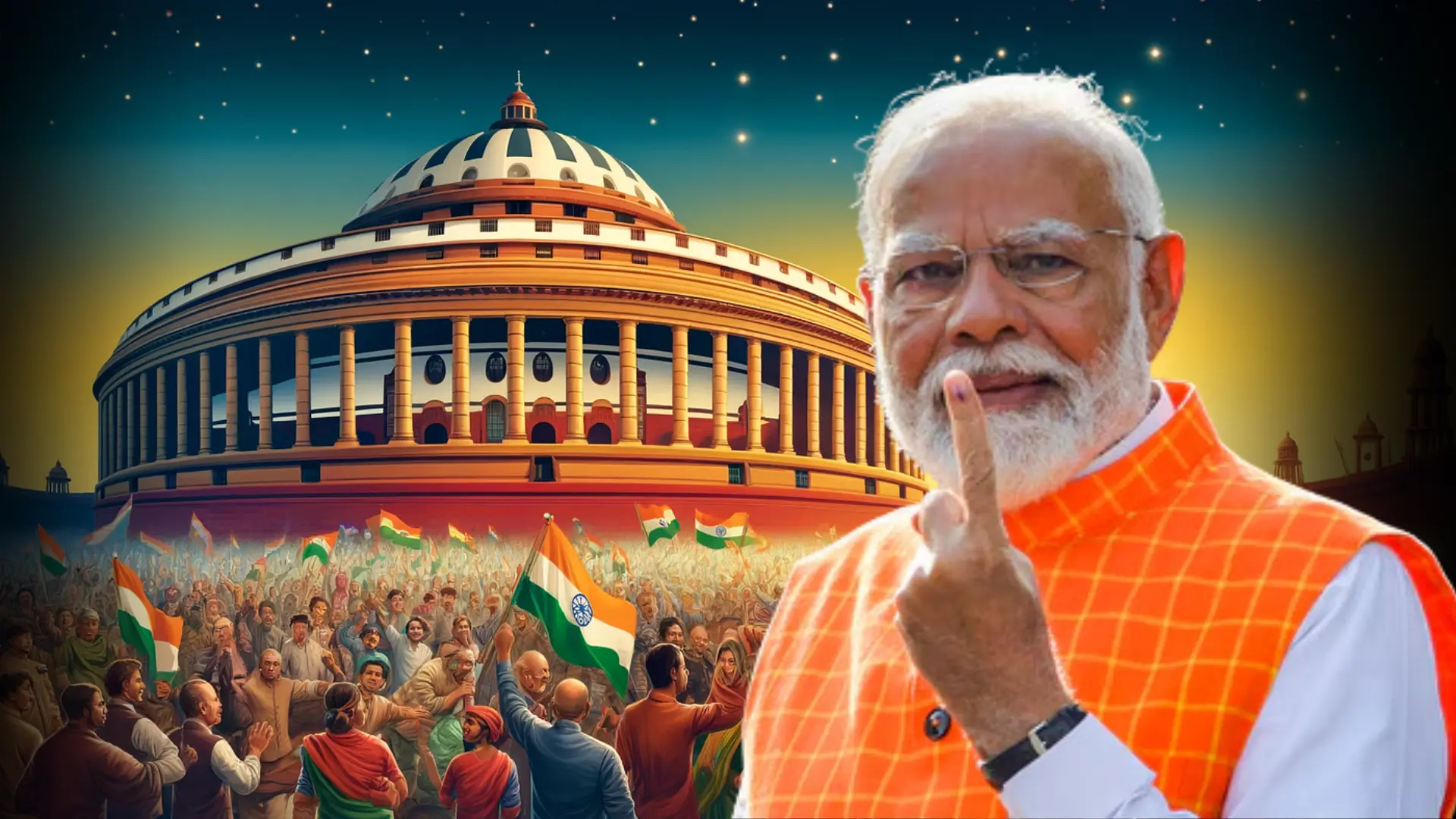Did you know that the latest cabinet approval of ‘One Nation, One Election‘ is an idea rooted in India’s history? It’s important to note that the concept, initiated by the Bharatiya Janata Party, is not an invention; rather, this idea has already been implemented in India’s past.


Let’s dive into the politics of independent India: 1952.
Although India gained independence in 1947, it was not until 1952 that the country witnessed the beginning of democracy with its first election. Holding a successful election in the newly independent nation was a matter of considerable concern.
Here are the key decisions made in the hope of ensuring a successful election, with added facts:
1. In 1950, Sukumar Sen was appointed as the Election Commissioner of India.
2. In 1952, elections for both the Vidhan Sabha and Lok Sabha were held.
3. The elections were conducted under Universal Adult Franchise, allowing citizens aged 21 and older to vote, while many countries still restricted voting rights for women.
4. The first election lasted four months, starting on October 21, 1951, and concluding in February 1952.
5. The elections were held for approximately 4,500 seats, including 499 Lok Sabha seats.
6. Due to the failure to provide names, the Election Commission had to remove nearly 28 lakh women from the voter list.
7. Around 17.2 crore people participated in the general election, of which 85% were illiterate.
8. To assist illiterate voters, election symbols were placed next to the candidates’ names.
9. An indelible election ink was introduced to prevent vote duplication; it would not wash off for a week.
10. Key political parties included the Congress, Socialist Party, Bharatiya Janasangh, and Communist Party.
11. There were a total of 14 national parties and 40 regional parties.
12. Key campaigners for Congress included Jawaharlal Nehru and Lal Bahadur Shastri.
13. In the election results, Congress received 45% of the votes but secured 74% of the seats, winning a total of 364 seats.
14. The Bharatiya Communist Party won 16 seats, with 8 seats coming from Madras.
15. The Bharatiya Janasangh contested in 49 seats, winning 3; its president, Syama Prasad Mukherjee, won from Kolkata Dakshin Purba.
16. The Socialist Party contested in 254 seats but managed to win only 12 seats.
Countries That Are Already Practicing Similar Concept On ‘One Nation, One Poll’
Other countries that hold elections at the same time include Belgium, Sweden, and South Africa.
In Sweden, elections for local councils and the national parliament happen every four years, usually in September, and all these elections take place on the same day. Sweden uses a proportional system, meaning that the number of seats each political party gets in the parliament depends on how many votes they receive.
In Belgium, federal elections occur every five years alongside European elections, which also affect regional elections. Belgium, Nepal, and Sweden are smaller countries, making it easier for them to manage simultaneous elections. South Africa is a better example, even though it’s not as large as India.
In South Africa, national and provincial elections are held together every five years. The country has nine provinces, and voters receive separate ballots for national and provincial elections. Like Sweden, South Africa also uses a proportional representation system for its elections.
The Independent Electoral Commission (IEC) oversees the elections in South Africa, ensuring the process is fair and unbiased. This role is similar to that of the Election Commission of India (ECI).
Before elections, political parties prepare a list of candidates they want to run. For the national assembly, they can submit half of their candidates on a national list and half on provincial lists. After the votes are counted, the IEC calculates how many seats each party gets based on their candidate lists.
Simultaneous Poll = Reality Soon?
Challenges One One Nation One Poll
Altering assembly terms would alter basic structure :
- will of the people manifestation is for good governance for 5 years’.
- Synchronicity in the elections is distributed when elected houses don’t fulfill mandate for 5 years.
Would Impair the fairness of electoral process:
- Would ensure better utilization of time and resources of those involved in process.
Would also reduce the role of financial resources.
- UnderminesIndia’s Federal Structure :
- India’s federalism is not based on geographical considerations
- Existence of two or more units of governance is not affected.
Also Read: What is One Nation-One Election? Benefits, Challenges And Everything You Need To Know
Pros vs Cons
Pros: Organising state assembly and Lok Sabha elections simultaneously will reduce expensivepolling cost.
People spend more time governing and less time campaigning.
Cons: EVMs have lifespan of 15 years, which would only be used three times under this proposal.
5 articles in the Indian constitution will have to be amended and every party will have to agree to the change.
Congress Counters
Amid discussions about ‘One Nation, One Election,’ Congress spokesperson Advocate Mahima Singh posed a question: “If the BJP and this country are so ready for ‘One Nation, One Election,’ then why did we have the longest Lok Sabha election this year? Why can’t the BJP and the Election Commission conduct elections in five states simultaneously? Why did it take the BJP to request the Election Commission to postpone elections in Haryana due to some festivities?”
For Better Understanding, Watch NewsX :



